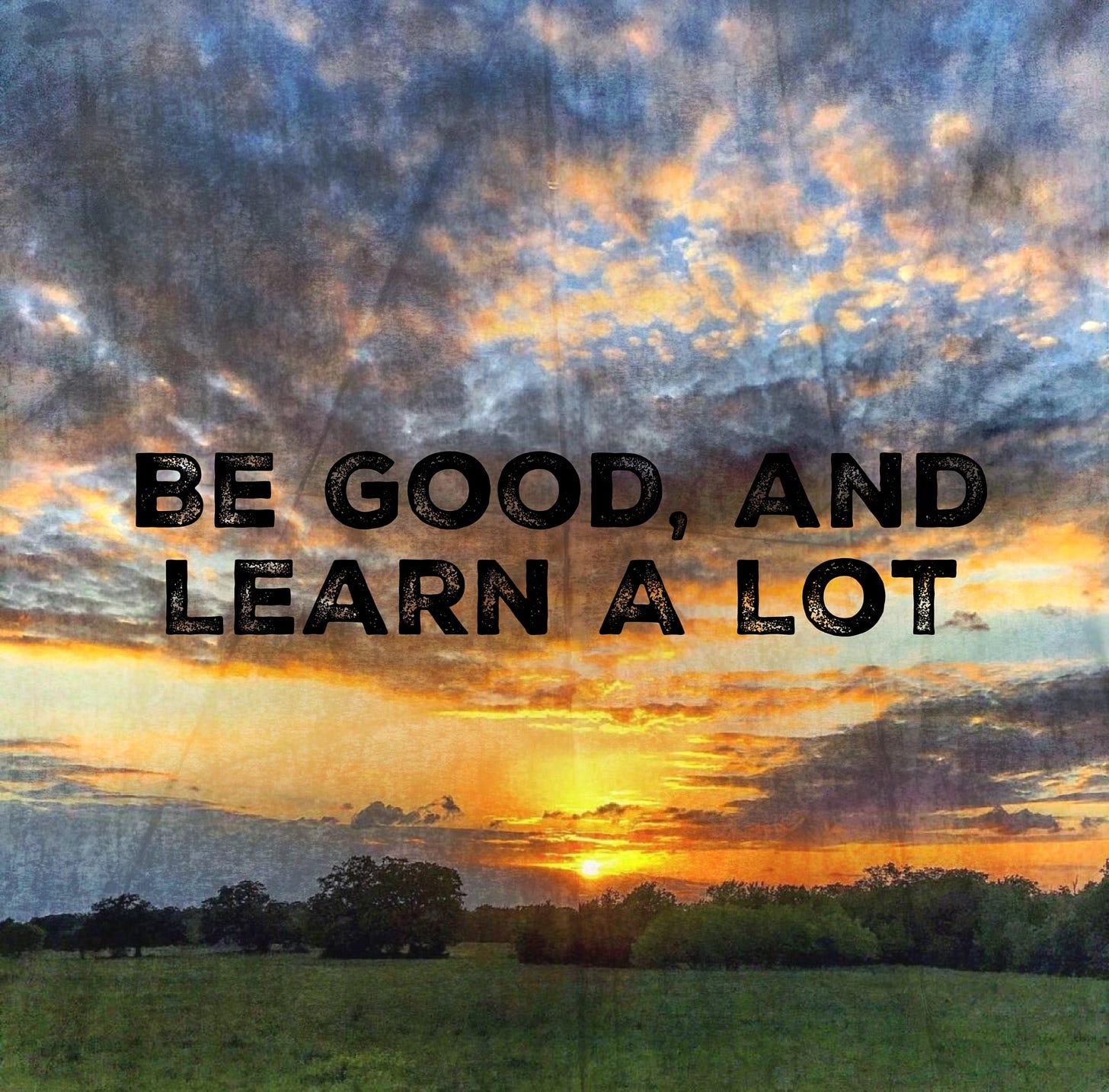Be Good and Learn A Lot
Thank you and Farewell…For Now
I never knew how lucky I was to grow up next door to my grandparents until I moved away. Every morning before school, I stopped in to see them because it was just what we did. At the time, I never gave it a second thought, and I never considered how unusual it was to get to make that visit.
I was never there for very long. I always had somewhere to be or something to do, but with very few exceptions, that visit was a part of my routine, like brushing my teeth or putting on my shoes. Before I left their house, the last thing my grandpa said to me before I left for school was always the same, “Be good and learn a lot.”
As an adult, I find myself borrowing phrases from my grandpa more than I ever thought I would. If you ask my son what he dreamed about last night, his most common answer is, “I was too busy sleeping.” He learned that from me because my grandpa used to ask me if I had any good dreams or was too busy sleeping. The unexpected consequence is how excited my son is to tell me about his dreams when he has them.
If you can’t tell from the last year's full of blog posts, I tend to overthink things. I am analytical and pensive. My mind never shuts off, and I regularly wake up because of some thought. I can’t tell you how many years I have spent thinking about the simple sentence, “Be good, and learn a lot.” I doubt my grandpa meant for me to internalize it the way I have, but I did just the same.
At the outset, the phrase is grammatically perfect. He didn’t tell me to do good because the quality with which things are done is “well” - not “good”. He said to be good. The direction was not to ace my spelling test or to score a bunch of points in a basketball game. He never told me to do something. He said to be something, and that thing was good.
Centuries before my grandfather’s advice, the German philosopher Immanuel Kant (pronounced K-ah-nt) introduced the idea of the ‘categorical imperative’—a principle of unconditional moral action.
Categorical means unconditional, and imperative means something that must be carried out. He determined that for something to be considered truly “good,” it must be done without concern for the outcome or the costs. To be good, we must commit to goodness for its own sake rather than our personal needs or gains.
It’s hard to think of any situation where we can find the pure good. Even if we said it’s good to keep our promises. We can all agree that a person who keeps their promises is good, but we likely keep our promises because we want people to trust us and not simply because it's a good thing to do.
Kant found three ways to be good, and since 18th-century German philosophers were not always easy to understand, I will paraphrase them.
Universalize Your Choices: Before doing something, ask yourself, “What if everyone did this?” If the world would be better off, then it’s a good thing. If it leads to contradictions or chaos, it’s not.
Value People: Treat people as though they have value, not only as though they bring value. Helping and respecting people because it improves their lives is good and should be done regardless of what you gain from it.
Build a Better Society: Act as if you were creating laws for a community that respects everyone’s dignity and autonomy. Ask yourself, “If this action became law, would it create a world I’d want to live in?”
That’s a lot to think about from just two words, but if you take only one lesson from a year’s worth of Everyday Eurekas, I hope it’s this one.
To that end, I implore you to continue learning and thinking for the sake of knowledge and understanding. Over the last year, I hope it is evident that I took the second half of my grandpa’s direction to heart. There are lessons all around us, and taking time to seek them out will make us all stronger people.
The direction to learn a lot has been a continual effort on my part, and I have enjoyed learning with you over the last year. On January 4 of this year, I laid out my resolution to share a eureka with you every week. Although it was not easy, I find myself in that roughly 8% of people who have completed their resolution.
I still plan to pursue other writing projects from here, but our weekly eureka has drawn to a close. I am grateful to you for reading and for your feedback throughout 2024, and I hope that you will be inspired to make 2025 a year of discovery for yourself. If, along the way, you come across your own eureka, I would love to hear about it, and if I stumble across something genuinely remarkable, I will be sure to write about it.
Until then, be good, and learn a lot.


